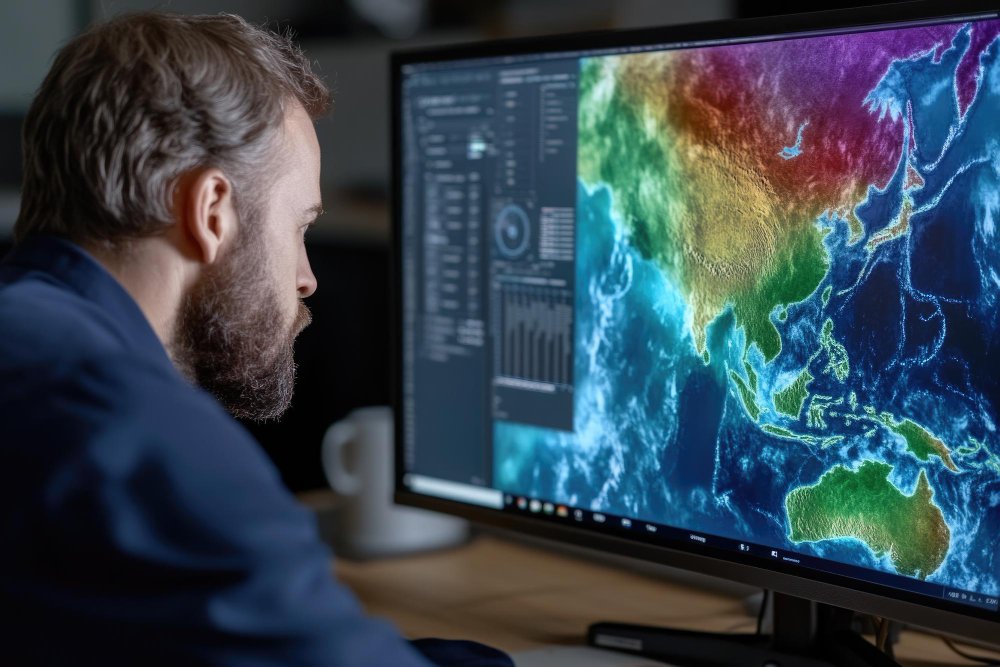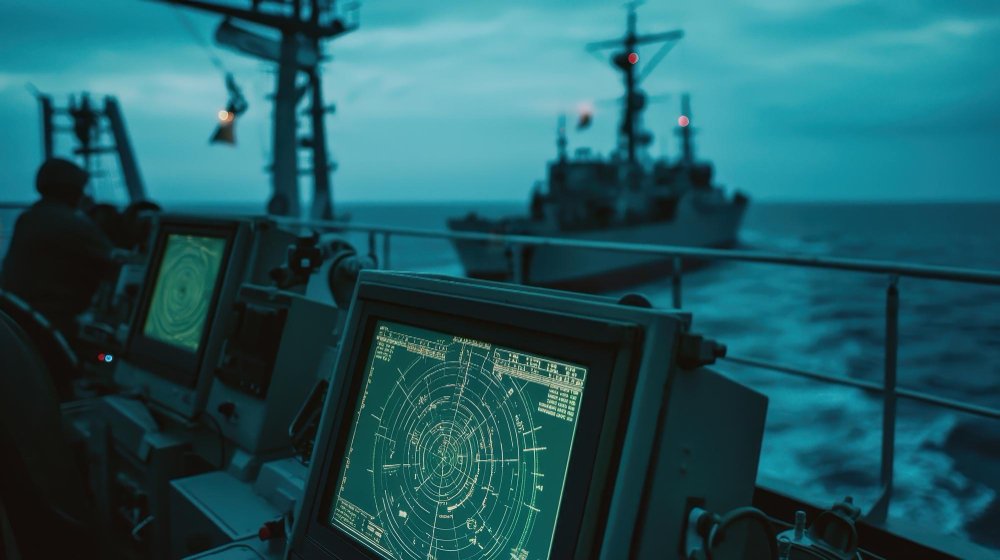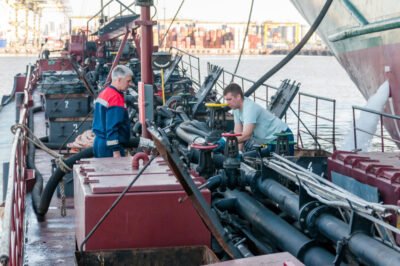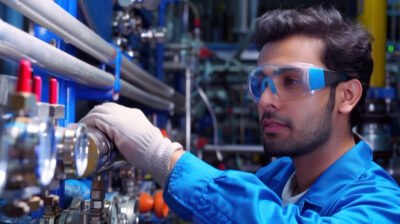The maritime industry is undergoing a technological revolution. Traditional maintenance models are being replaced by data-driven systems that predict and prevent equipment failures before they occur. Smart monitoring in marine systems powered by sensors, IoT, and analytics is reshaping how vessels are managed and maintained.
As global fleets focus on minimizing downtime and optimizing operational efficiency, predictive maintenance has become an essential strategy. Through continuous monitoring of critical components like separators, compressors, and pumps, operators gain real-time insights into system performance reducing costs, enhancing safety, and supporting sustainable operations
What Is Smart Monitoring in Marine Systems?
Smart monitoring refers to the use of interconnected sensors and digital technologies that collect, transmit, and analyze operational data across a vessel’s systems. These sensors measure parameters such as temperature, vibration, pressure, flow rate, and oil quality providing a continuous health report for each critical component.
In a typical marine environment, this technology integrates with onboard automation and control systems. The goal is to achieve predictive visibility: identifying when a part is likely to fail or when performance deviates from normal, allowing timely interventions without unnecessary maintenance shutdowns.
By combining IoT (Internet of Things), machine learning, and data analytics, smart monitoring transforms maintenance from reactive to proactive
The Role of Predictive Maintenance in Modern Vessels
Predictive maintenance (PdM) leverages smart monitoring data to predict potential equipment issues. Instead of waiting for a failure to occur, the system analyzes sensor data patterns to forecast when maintenance should be performed.
In marine applications, predictive maintenance delivers measurable results:
Reduced Downtime: Early detection allows maintenance teams to plan interventions during scheduled stops.
Cost Efficiency: Replacing only worn or at-risk components reduces spare parts consumption.
Extended Equipment Life: Monitoring parameters like vibration or oil contamination prevents irreversible damage.
Enhanced Safety: Early warnings prevent critical system failures in high-pressure environments.
For components like separators, compressors, and pumps, predictive maintenance ensures reliable performance under demanding maritime conditions
Integrating Smart Monitoring with Maridec’s Core Systems
Maridec provides high-quality marine spare parts and technical solutions for vital ship systems such as separation, filtration, compression, and pumping. While the company’s primary expertise lies in supplying durable mechanical components, the future of marine engineering is shifting toward intelligent, connected solutions.
By aligning with smart ship technologies, Maridec supports this evolution through:
Sensor-ready spare parts designed for integration with monitoring systems.
Consultation on system optimization, ensuring compatibility between existing equipment and digital upgrades.
Collaboration with ship operators adopting IoT and predictive monitoring strategies for improved efficiency.
This approach positions Maridec not only as a spare parts provider but as a technical solutions partner for next-generation marine operations.
Key Technologies Behind Smart Monitoring
Smart monitoring in marine systems relies on several interconnected technologies:
IoT Sensors: Measure operational data such as vibration, flow, temperature, and oil quality.
Data Analytics Platforms: Aggregate and analyze real-time data to detect anomalies.
Machine Learning Models: Continuously learn from system behavior to refine predictions.
Cloud Connectivity: Enables remote access, reporting, and global fleet monitoring.
Automation Systems: Link sensor outputs to onboard control systems for automatic adjustments.
These technologies allow ship operators to transform massive amounts of operational data into actionable insights resulting in optimized maintenance schedules and reduced operational risk
Smart Monitoring Applications Across Marine Systems
a) Separator Systems
Smart sensors monitor parameters like bowl speed, temperature, and differential pressure, predicting when components like seals or bearings require replacement.
b) Compressor Systems
Continuous monitoring of vibration and oil quality helps detect early-stage mechanical wear or contamination. Predictive alerts prevent sudden air system failures.
c) Pump Systems
Flow and pressure sensors analyze pump efficiency, identifying potential cavitation or impeller imbalance long before performance drops.
Each of these systems, when integrated with smart monitoring, contributes to overall energy efficiency and operational reliability two pillars of sustainable maritime operations.
Benefits of Smart Monitoring for Ship Operators

Smart monitoring delivers broad advantages across operational, financial, and environmental dimensions:
Reduced Maintenance Costs: Maintenance becomes condition-based, minimizing unnecessary interventions.
Improved Operational Uptime: Real-time insights ensure uninterrupted system performance.
Data-Driven Decisions: Fleet managers gain a holistic view of system health across vessels.
Energy Optimization: Efficient operations reduce fuel consumption and emissions.
Sustainability Compliance: Aligns with IMO’s environmental goals and carbon reduction targets.
As shipping companies move toward greener and smarter operations, these benefits create a strong competitive advantage.
Smart Ship Technologies: A Vision for the Future
The future of the maritime industry is undeniably digital. Smart ship technologies will integrate automation, real-time monitoring, and AI-based control systems to create self-optimizing vessels.
Maridec’s commitment to innovation aligns with this trend. By supplying components compatible with digital systems and advising on smart integration strategies, the company contributes to a more connected and sustainable marine ecosystem
Challenges and Considerations in Implementation
Despite the advantages, implementing smart monitoring systems in maritime environments requires overcoming certain challenges:
Integration with Legacy Equipment: Older vessels may require system upgrades or retrofitting.
Data Security: Connectivity increases the need for robust cybersecurity measures.
Training Requirements: Crews must be skilled in interpreting and acting on data insights.
Maridec’s technical expertise and industry partnerships help ship operators navigate these challenges efficiently ensuring that modernization efforts deliver measurable results.
Building a Smarter, More Efficient Marine Industry
Smart monitoring represents the future of marine maintenance combining predictive analytics, real-time data, and automation to ensure reliable, efficient, and sustainable vessel operations.
As global regulations tighten and the demand for energy-efficient systems grows, adopting predictive maintenance strategies becomes essential. Maridec stands ready to support ship operators and technical teams with high-quality components, expert consultation, and a clear vision for smarter marine systems.
CTA:
👉 Contact Maridec today to discuss smart ship technologies and discover how predictive maintenance can transform your fleet’s performance.





